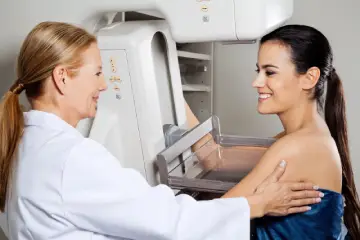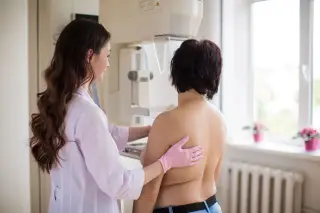Ovarian Cysts
Ovarian Cysts Q & A
What is an ovarian cyst?
Ovarian cysts form on the ovaries, the almond-shaped reproductive organs that sit on either side of the uterus. Your eggs develop and mature in the ovaries, and are released monthly during ovulation, which results in your menstrual cycle.
Little sacs of fluid can form on the ovaries and are quite common. Often they disappear on their own without treatment. But, if you have cysts that are symptomatic or that rupture, you need treatment.
What are the symptoms of ovarian cysts?
Ovarian cysts typically don’t cause symptoms. However, if you have a particularly large cyst, you may have a dull ache in your lower abdomen, sharp pain on the side of the cyst, bloating, or a full feeling in your abdomen.
If your cyst causes the ovary to move, called torsion, you may suffer serious symptoms, including:
- Severe pelvic pain
- Nausea
- Vomiting
Rupture of an ovarian cyst can cause similar symptoms, as well as internal bleeding.
How can I prevent ovarian cysts?
You can’t prevent ovarian cysts from developing, but getting a regular pelvic exam ensures they’re monitored and not a rare cancerous type. If you have any changes to your menstrual cycle or unusual pain, it’s a good idea to get checked out by the team at The Women’s Center to make sure you don’t have a cyst or other pelvic organ complication.
How are ovarian cysts treated?
If a cyst is detected during a pelvic exam or during an ultrasound, but it isn’t causing symptoms, your doctor at The Women’s Center may suggest a wait-and-see approach to let it dissipate on its own in a few months.
Alternatively, you may opt for hormonal contraceptives, such as the pill or certain IUDs, to prevent cysts from recurring or developing. These hormones, however, won’t shrink an existing cyst.
A large cyst that continues to grow may best be addressed with surgery. Your surgical options include ovarian cystectomy, which involves extracting the cyst but keeping the ovary intact, and an oophorectomy, in which the affected ovary is removed.
To learn more about ovarian cysts and possible complications, call one of the locations of The Women’s Center today or book an appointment online.
We Provide You With The Best Services

Mammogram
Learn
More
Routine mammograms are the best way to find breast cancer early when it’s most treatable. The expert OB/GYN team at...




